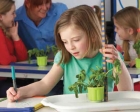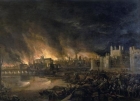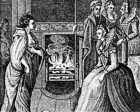Classroom Resources
These resources can take many forms but will be aimed at helping younger children explore historical concepts through their senses and developing their language and communication. For example, artefacts, visual images of various kinds, stories and people themselves all help younger children to explore ideas and work out problems for themselves and with support from informed adults.
-

What your local Archive Service can offer to schools
ArticleClick to view -

Local People and Places in the Early Years
ArticleClick to view -

From Home to the Front: World War I
ArticleClick to view -

Pull-out Posters: Primary History 69
ArticleClick to view -

Using 'Development Matters' in the Foundation stage
ArticleClick to view -

War memorials as a local history resource
ArticleClick to view -

Chronology: Developing a coherent knowledge
ArticleClick to view -

Why stories?
ArticleClick to view -

The Great Fire of London and the National Curriculum
ArticleClick to view -

Teaching and learning about Grace O'Malley as a significant woman at Key Stage 1
ArticleClick to view -

A History of the World: 100 objects that tell a story
ArticleClick to view -

Helping pupils to view historical film critically
ArticleClick to view -

A creative Egyptian project
ArticleClick to view -

In My View: Creativity & History
ArticleClick to view -

Bring on the iPad revolution
ArticleClick to view -

Chronology through ICT
ArticleClick to view -

The Interactive Whiteboard or Smart Board
ArticleClick to view -

History, ICT and the digital age
ArticleClick to view -

The digital revolution
ArticleClick to view -

Case Study: Hit the net!
ArticleClick to view

